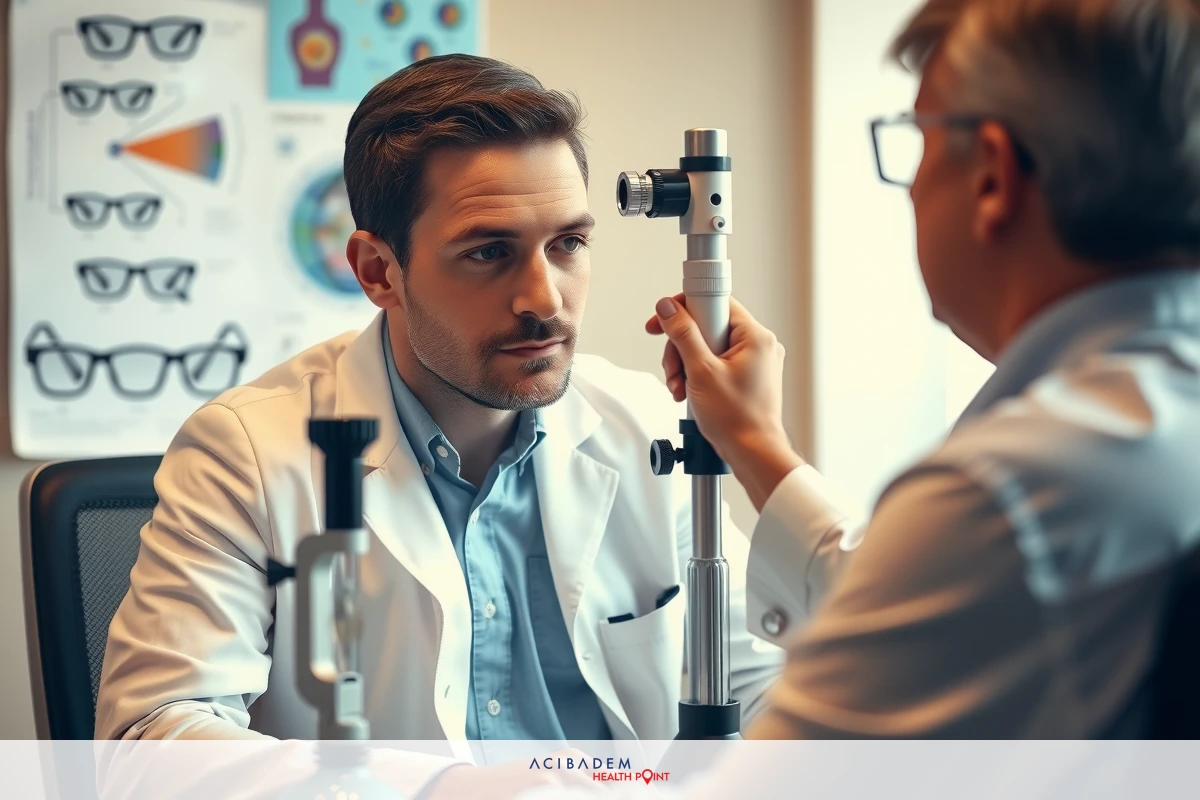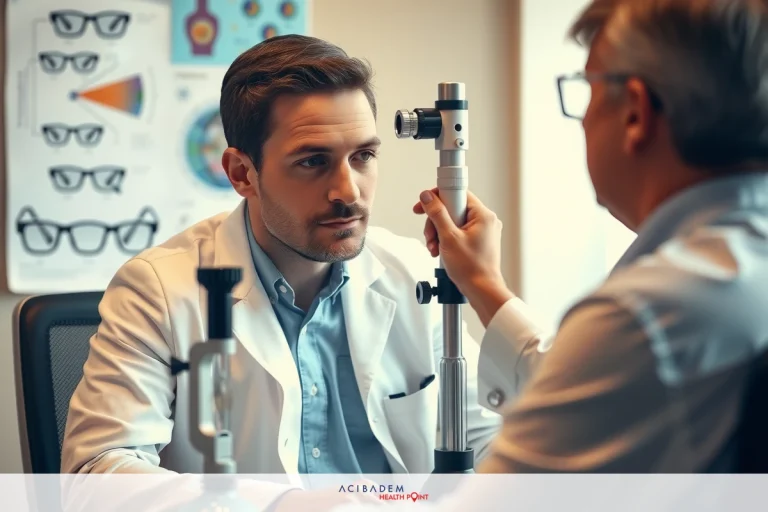Can Your Eyes Still Get Worse After LASIK?
Can Your Eyes Still Get Worse After LASIK? LASIK, a term synonymous with clarity and precision in the realm of vision correction, carries an undercurrent of inquiry about its long-term effects on eye health. Eyes are susceptible to changes over time, irrespective of refractive corrections. Can our eyes degrade post-LASIK surgery?
With numerous factors at play, influencing our visual acuity beyond LASIK intervention becomes inevitable. Ordinary aspects like aging or developing conditions such as cataracts could impact your eyesight into the future. The variability in outcomes emphasizes the importance of personalized guidance from trusted eye care professionals for any concerns following LASIK surgery.
The possible fluctuations that may occur after your vision has been corrected by LASIK offers insight into what you might expect as time marches on.A core concept revolves around stability. Where does LASIK place us on this spectrum? Acknowledging these complexities paves the way for more informed decisions about eye care and maintaining optimal vision.
Can Your Eyes Still Get Worse After LASIK? Factors Affecting Vision Improvement
LASIK, a widely practiced surgical intervention for vision correction, has its outcomes contingent on a host of factors. The term ‘outcome’ transcends just immediate post-operative clarity – it extends to how these corrected eyes navigate through time. While LASIK aims at refractive accuracy, an assortment of influences could alter this envisioned path.
It’s no revelation that our body changes as we grow older and our eyes are no exception to this rule. Aging brings with it certain inevitable visual impairments like presbyopia or age-related far sightedness which aren’t typically addressed by LASIK surgery. Even if you’ve had flawless vision following your procedure,you may find yourself in need of reading glasses as you hit your 40s or 50s due to developing presbyopia.
High blood glucose levels can cause swelling in the lens inside the eye leading to blurry vision despite successful surgeries previously correcting your view of the world around you. Your overall eye health is of significant importance here. Pre-existing conditions like multiple sclerosis and autoimmune disorders can have implications for both long-term recovery and the stability of results after LASIK surgery.
Lifestyle traits could potentially contribute towards modifying one’s visual acuity over time. Excessive screen time without breaks strains our eyes and can worsen dry-eye syndrome, complicating matters compared to before LASIK. It’s crucial to continue following recommended protective measures, including computer glasses, to maintain the improved vision achieved through laser-assisted corrective procedures.
Long-Term Stability of Vision
The objective of LASIK goes beyond being a photocopy fix for poor sight. It aims to reformulate the optics in your eyes, ushering in years of clarity and precision. This promise is not one that’s lightly given: it rides on the back of meticulous intensity profiles applied during surgery and vastly rests on long-term stability.
Upon undergoing LASIK, patients often indulge in a revelry celebrating their newfound vision but what stays largely lurking beneath conscious thought is how this corneal restructure will fare through time. The microkeratome or laser used in the procedure sculpts the cornea’s shape, correcting common refractive errors like myopia, hypermetropia, or astigmatism that often cause blurry vision, creating a new future for millions.
The core principle of LASIK guarantees longevity. By reshaping the cornea with precise ablation of microscopic amounts, it remains stable unless affected by injuries or pathological changes over time. Affords consistent visual acuity many years following operative intervention even without use corrective lenses previously essential prior

advent miraculous marvel modern medicine.
While majority individuals enjoy continuous clear sights after successful procedures occasional exceptions exist make routine examinations eye-care professionals integral part ocular health regime even post laserassisted surgeries.
Certain conditions like glaucoma cataracts gradually developing overtime could potentially alter landscapes otherwise reconstruction envisaged during initial operation consequently affect resultant expectancy sustained improvement.
LASIK embodies more than just short-term prescription liberation. It symbolizes an investment in durable enhanced eyesight, thereby adding momentum to our daily lives, liberating us from the constraints of glasses and contact lenses.
Perhaps the most compelling reason to opt for remodeling refractive imperfections is granting us the opportunity to embrace an enriched lifestyle quality, which weaves confidence into everyday actions, interactions, sporting activities, and the simplest joys, like reading without needing to reach for pesky spectacles.
Consulting Your Eye Care Professional
Just as every person walks a unique path, so does the journey of each pair of eyes post-LASIK surgery. Stepping into this vision-filled future shines light on uncharted territories that may at times be interspersed with shadows of doubt or concerns about changes in your eyesight beyond LASIK intervention.
The role played by an eye care professional following such surgeries transcends mere protocol-based followups. They transition into torchbearers guiding you through these new visual landscapes. Their expertise involves deciphering subtle shifts, offering personalized guidance tailored to individual ocular profiles and circumstances that might go unnoticed by a casual observer beneath the appearance of clear radars.
A trusting relationship between patients and their care providers facilitates open dialogue, addressing any doubts or uncertainties during the recovery period, allowing for early detection and resolution of potential issues over time. This dynamic promotes smoother adaptation and improved vision after laser-assisted refractive corrections like LASIK. It forms the foundation for long-term comfort and satisfaction derived from investing in quality-of-life enhancement through precision-based surgical procedures.
Regular consultats enable professionals to take a proactive approach in managing any deviations from expected outcomes, ensuring individuals continue to enjoy the benefits of their enhanced vision. This is a testament to the ever-evolving marvel of science and medicine, weaving together to create brighter horizons for those who dare to envision a better tomorrow today.
Never underestimate the critical role that regular consultations with competent eye care providers play in nurturing a successful LASIK journey. The process of transforming blurriness into clarity necessitates more than just precise lasers. This ensures that sustained improvement is attained, and anticipated promises are delivered, holding true to enchantingly crystal-clear visuals well into the future, taking shape right before our very own eyes.
Frequently Asked Questions
How long can I expect my improved vision to last after LASIK surgery?
Typically, the outcome of your LASIK surgery is designed to be permanent. The procedure modifies the shape of your cornea, aiming for long-term stability in corrected refractive errors. Factors such as aging and health condition changes may warrant slight adjustments over time.
What should I do if I notice changes in my eyesight post-LASIK?
If you observe any notable shifts in your vision after undergoing LASIK, it would be prudent to schedule a consultation with an eye care professional promptly. They are best equipped to understand these nuances and offer comprehensive personalized guidance based on their assessments.
Despite successful LASIK operation, why am I having difficulty reading small prints?
This phenomenon might likely attributable development presbyopia age-related farsightedness typically sets around age 40 irrespective whether you've undergone refractive surgeries earlier or not. It doesn't indicate worsened vision, but rather part natural aging process.
Is regular follow-up necessary even once visual recovery achieved post-LASIK?
Yes ! Regular consultations with eye-care professionals are crucial for maintaining optimal ocular health, enabling early detection and management of any deviations from expected outcomes. This ensures the ongoing enjoyment of the benefits from corrective procedures. Please note that while we strive bring accurate informative answers these commonly asked questions, this material intended broadly informational purposes only does not constitute medical advice. Always consult healthcare provider regarding concerns possible treatments pertaining personal medical conditions.








